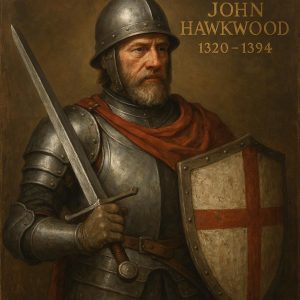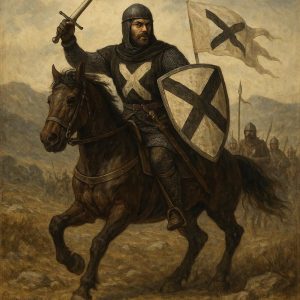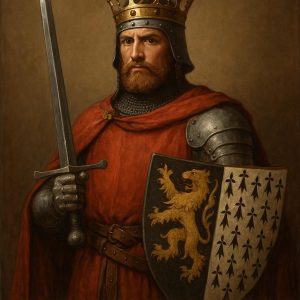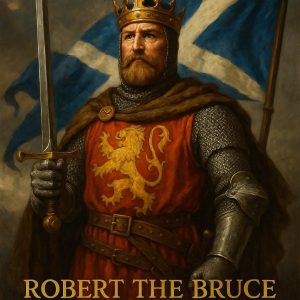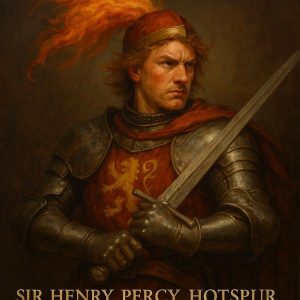Alexander Nevsky (1221–1263) was one of the most powerful and influential leaders in medieval Russia, remembered as both a brilliant military commander and a skilled diplomat. As Prince of Novgorod and later Grand Prince of Vladimir, he defended the Russian lands against invading Swedish and Teutonic forces while skillfully negotiating with the Mongol Empire to preserve Russian autonomy. His famous victory at the Battle on the Ice in 1242 made him a national hero and a symbol of Russian unity and resilience. Revered by the Russian Orthodox Church as a saint, Alexander Nevsky remains a towering figure in Russian history — embodying courage, faith, and leadership during one of the most turbulent centuries of the Middle Ages.

At the time, Russia was ravaged by the Golden Horde on one side, being effectively under the control of the Horde.
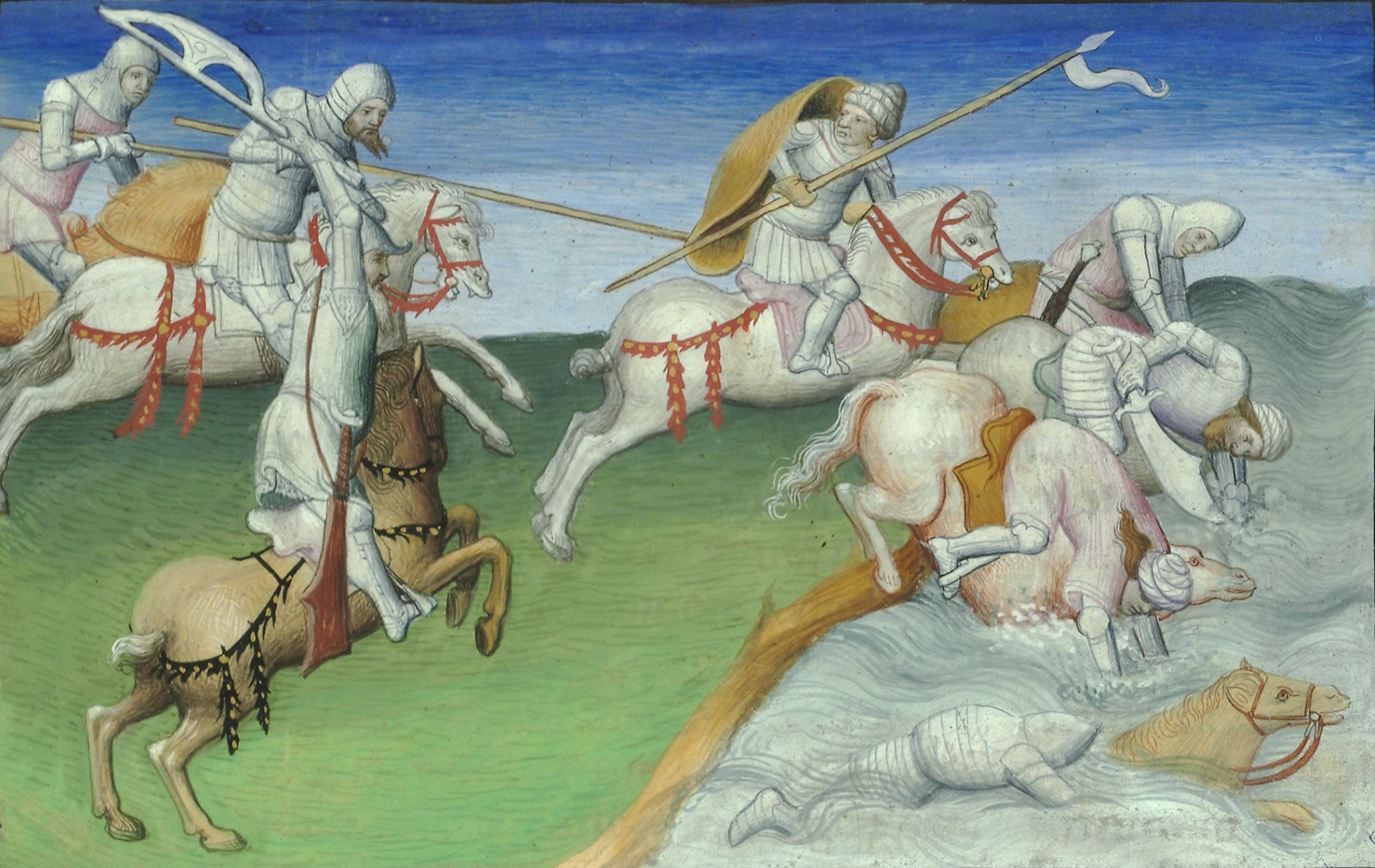
On the other side, Swedes and Germans were launching campaigns into Russia.
Nevsky forged an alliance with the Horde and by essentially serving as their vassal, was able to defend Russia’s territorial integrity as well as its cultural identity. For this reason, Nevsky is also regarded as the most significant Russian hero.
Alexander Nevsky and Golden Horde
Nevsky was eight years old when he was given as a hostage to the Golden Horde as part of the agreement between his older brother and the Horde.
During his stay with the Horde, Nevsky became close to the ruling dynasty and forged lasting ties with it. He was eventually tasked with overlooking the Vladimir principality by the Horde.
Later when Novgorod faced the threat of an invasion, it sought the help of Alexander Nevsky against the invaders.
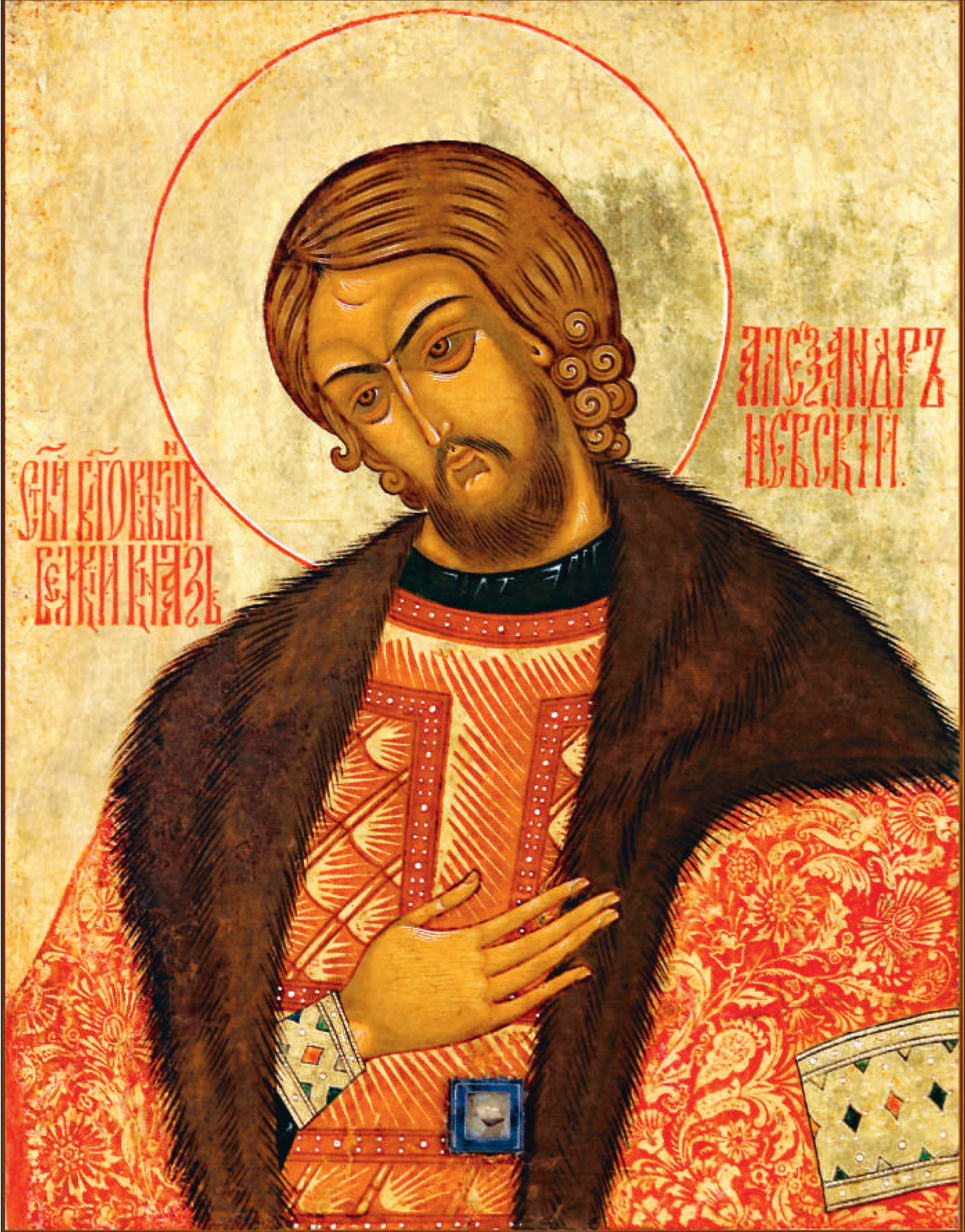
Defeat of Swedes and Germans
In 1240, Swedes were advancing on Novgorod and other Russian territories. Alexander led an army and routed the Swedes, effectively blocking any invaders from the north of Rus.
This was soon followed by a German threat to Novgorod in 1241 whereby Germans and Estonians advanced to invade the region. Alexander was summoned to defend the region once again.
In the 1242 Battle of the Ice, he defeated the invaders successfully. The battle was a remarkable instance of medieval warfare in that Alexander was able to defeat the invaders who were mounted knights with a force that was primarily infantry.
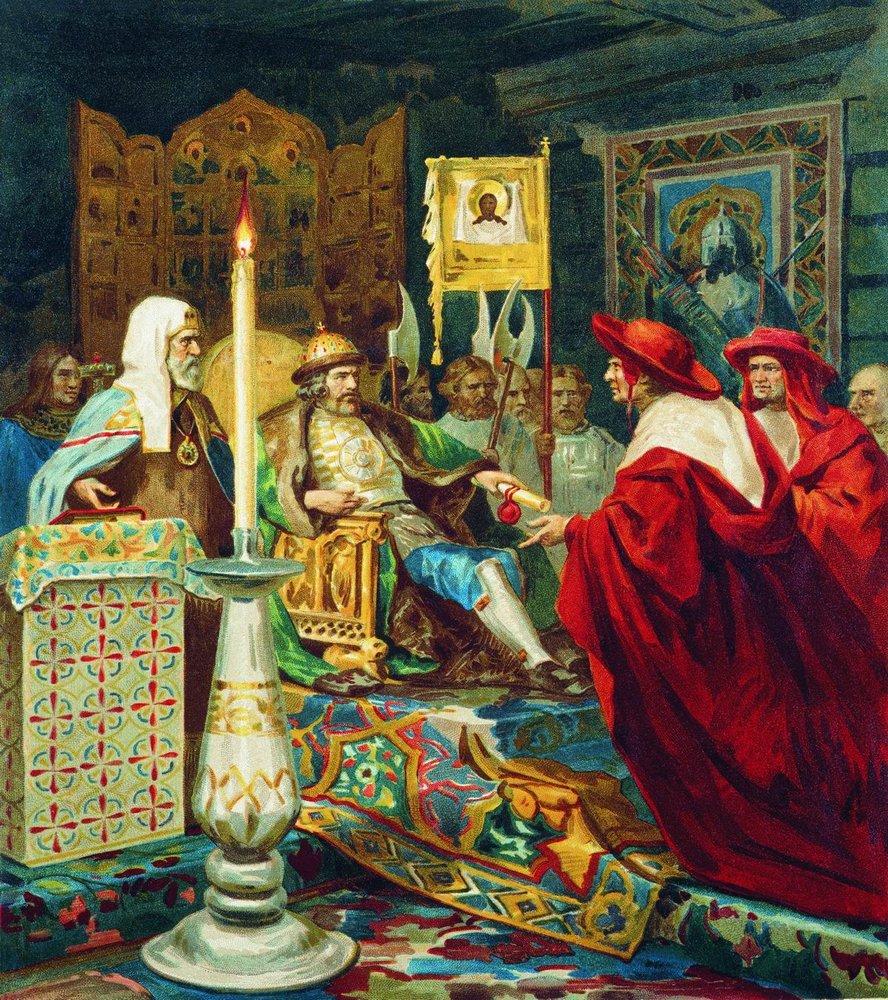
Alexander Nevsky as a Politician
By the time of the battles with the Germans and Swedes, Nevsky already enjoyed significant power and influence in Russia.
He consolidated the security of the Russian territories in the North by forging ties with Norway and defeating Swedes in further conflicts.
At the same time, he kept Russia aloof from overtures by the Catholic Church, a move that was considered vital in maintaining Russia’s east-oriented culture.
At the same time, he maintained close relations with the Golden Horde throughout his life. Defeating the Horde for a still-nascent Russia was virtually impossible, so the alliance helped Nevsky save Russia from any adventures and focused on consolidating the strength of Russian territories.
He was finally elevated to the rank of Grand Prince of Vladimir, which was essentially the position of the ruler of Russia under the Horde.

Alexander Nevsky in Russian History
Alexander Nevsky is considered a key figure in Russian history. He was vital in bringing together the scattered Russian territories under a consolidated control of a Russian and shielding them from any invaders.
Due to his close alliance with the Horde, he was able to gain many favours for the Russians which in the long-term ultimately helped achieved the Russian autonomy.
He was canonised as a saint in the 16th century and remained the most popular Russian hero.
❓ Frequently Asked Questions About Alexander Nevsky
1. Who was Alexander Nevsky?
Alexander Nevsky (1221–1263) was a renowned Russian prince, statesman, and military leader. He ruled as Prince of Novgorod and later as Grand Prince of Vladimir, defending Russia from foreign invaders and securing its position during the turbulent 13th century.
2. Why is Alexander Nevsky famous?
Nevsky is best known for his victory over the Teutonic Knights at the Battle on the Ice in 1242. This triumph made him a symbol of Russian courage, faith, and unity against Western and Mongol pressures.
3. What was the Battle on the Ice?
The Battle on the Ice took place on Lake Peipus in 1242, where Alexander Nevsky’s forces defeated the invading Teutonic Knights. The frozen lake played a crucial role in trapping the enemy’s heavy cavalry.
4. How did Alexander Nevsky deal with the Mongols?
Unlike many rulers of his time, Nevsky chose diplomacy over confrontation with the Mongol Empire. By cooperating and paying tribute, he preserved the autonomy and stability of Russian territories under his control.
5. Was Alexander Nevsky canonized as a saint?
Yes. In 1547, the Russian Orthodox Church canonized Alexander Nevsky for his faith, leadership, and defense of Orthodoxy. He remains one of Russia’s most venerated national heroes and saints.
6. What was Alexander Nevsky’s legacy?
His leadership laid the foundation for the future rise of the Russian state. The Order of Alexander Nevsky was later established by Tsar Peter the Great to honor military and civil excellence in his name.
7. Where can you see monuments to Alexander Nevsky today?
Statues, cathedrals, and churches dedicated to Alexander Nevsky can be found across Russia, including the magnificent Alexander Nevsky Cathedral in St. Petersburg and other cities.
⚔️ Test Your Knowledge: Alexander Nevsky Quiz

